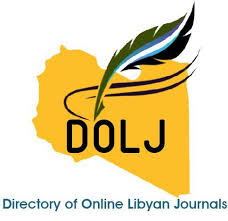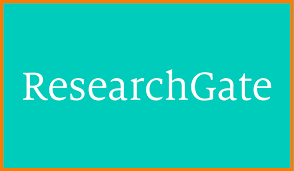Academic Achievement of Undergraduate Nursing Students in The Faculty of Nursing Before And During Corona Pandemic
DOI:
https://doi.org/10.54361/ljmr.17-17Keywords:
E-learning, the Corona pandemic, Academic achievementAbstract
Background: Universities were abruptly obliged to move to e-learning as a result of the Corona pandemic, and the University of Tripoli's College of Nursing was one among such institutions. From there, the research came to show the reality of using e-learning in the College of Nursing at the University of Tripoli, Libya. Under these circumstances. Purpose: The purpose of this study is to compare the academic achievement of second semester nursing students in the faculty of nursing before and during the Corona pandemic. Method: Using the quantitative comparative research design with all population sampling, a total of 148 nursing students were utilized as the sample. 88 of which were allotted before Corona pandemic while samples of 60 during the Corona pandemic. Data were collected from the college study and exams office, which were the final grade of the selected course in the second semester of the academic year 2019-2020 and the first semester of the academic year 2020-2021. The collected data were statistically analyzed using SPSS version 24, with t-test used to compare the effect of e-learning on student achievement in Fundamentals of Nursing 2 course (NU113) during the Corona pandemic to that of face-to-face learning prior to the Corona pandemic. Results: The results revealed that the average academic achievement scores for students before the Corona pandemic with face-to-face education was 56.76 and that the average academic achievement scores for students during the Corona pandemic with e-learning was 56.23. Significance levels were set at α≤ 0.05 was considered as statistically significant for all analyses of comparison between student scores before and during the Corona pandemic. The results showed that there is no statistically significant difference in academic achievement between students who studied e-learning and face-to-face education, with (p=0.868 > α). Ho is accepted, which means that the transition to e-learning rather than face-to-face education had no negative impact on academic achievement, it was found that nursing students academic achievement is not negatively affected by the Corona pandemic. Conclusion: In this way, e-learning can be harnessed and developed to advance the nursing education agenda. Further study is recommended to assess the impact of e-learning on students’ academic achievement on other courses.
Downloads
References
Affouneh, S., Salha, S., & Khlaif, Z. N. (2020). Designing quality e-learning environments for emergency remote teaching in coronavirus crisis. Interdisciplinary Journal of Virtual Learning in Medical Sciences, 11(2), 135-137.
Alzahrani, A. A. (2019). The effect of distance learning delivery methods on student performance and perception. International Journal for research in Education, 43(1), 293-317.
Dhawan, S. (2020). Online learning: A panacea in the time of COVID-19 crisis. Journal of educational technology systems, 49(1), 5-22.
Jawad, Y. A. L. A., & Shalash, B. (2020). The Impact of E-Learning Strategy on Students' Academic Achievement Case Study: Al-Quds Open University. International journal of higher education, 9(6), 44-53.
Kaymak, S., & Esengeldi, M. (2021). Comparison between offline learning and online learning. Journal. Suleyman Demirel University, Kazakhstan.
Lestari, W., Ichwan, S. J., Yaakop, S. Z., Sabaznur, N., Ismail, A., & Sukotjo, C. (2022). Online Learning during the COVID-19 Pandemic: Dental Students’ Perspective and Impact on Academic Performance, One Institution Experience. Dentistry Journal, 10(7), 131.
Libasin, Z., Azudin, A. R., Idris, N. A., Rahman, M. A., & Umar, N. (2021). Comparison of students’ academic performance in mathematics course with synchronous and asynchronous online learning environments during COVID-19 crisis. International Journal of Academic Research in Progressive Education and Development, 10(2), 492-501.
Pei, L., & Wu, H. (2019). Does online learning work better than offline learning in undergraduate medical education? A systematic review and meta-analysis. Medical education online, 24(1), 1666538.
UNESCO. (2020). COVID‐19 educational disruption and response. 10. World Health Organization. (2020). WHO Director-Generals' opening 179 remarks at the media briefing on COVID-19-11 March 2020.
Downloads
Published
Issue
Section
License
Copyright (c) 2023 Mabrouka Ali Jelpan (Author)

This work is licensed under a Creative Commons Attribution-NonCommercial-NoDerivatives 4.0 International License.
Open Access Policy
Libyan journal of medical Research (LJMR).is an open journal, therefore there are no fees required for downloading any publication from the journal website by authors, readers, and institution.
The journal applies the license of CC BY (a Creative Commons Attribution 4.0 International license). This license allows authors to keep ownership f the copyright of their papers. But this license permits any user to download , print out, extract, reuse, archive, and distribute the article, so long as appropriate credit is given to the authors and the source of the work.
The license ensures that the article will be available as widely as possible and that the article can be included in any scientific archive.
Editorial Policy
The publication of an article in a peer reviewed journal is an essential model for Libyan journal of medical Research (LJMR). It is necessary to agree upon standards of expected ethical behavior for all parties involved in the act of publishing: the author, the journal editorial, the peer reviewer and the publisher.
Any manuscript or substantial parts of it, submitted to the journal must not be under consideration by any other journal. In general, the manuscript should not have already been published in any journal or other citable form, although it may have been deposited on a preprint server. Authors are required to ensure that no material submitted as part of a manuscript infringes existing copyrights, or the rights of a third party.
Authorship Policy
The manuscript authorship should be limited to those who have made a significant contribution and intellectual input to the research submitted to the journal, including design, performance, interpretation of the reported study, and writing the manuscript. All those who have made significant contributions should be listed as co-authors.
Others who have participated in certain substantive aspects of the manuscript but without intellectual input should only be recognized in the acknowledgements section of the manuscript. Also, one of the authors should be selected as the corresponding author to communicate with the journal and approve the final version of the manuscript for publication in the LJMR.
Peer-review Policy
- All the manuscripts submitted to LJMR will be subjected to the double-blinded peer-review process;
- The manuscript will be reviewed by two suitable experts in the respective subject area.
- Reports of all the reviewers will be considered while deciding on acceptance/revision or rejection of a manuscript.
- Editor-In-Chief will make the final decision, based on the reviewer’s comments.
- Editor-In-Chief can ask one or more advisory board members for their suggestions upon a manuscript, before making the final decision.
- Associate editor and review editors provide administrative support to maintain the integrity of the peer-review process.
- In case, authors challenge the editor’s negative decision with suitable arguments, the manuscript can be sent to one more reviewer and the final decision will be made based upon his recommendations.














